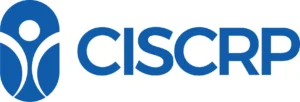Contact Us
Greenville Location
- 37 Brendan Way Greenville, SC, 29615
- Phone: 864-214-1217
- Fax: 864-962-8952
Anderson Location
- 1411 N. Main Street Anderson, SC 29621
- Phone: 864-622-8480
- Fax: 864-962-8952
Administrative Office
- 115 N. Main Street Fountain Inn, SC 29644
- Phone: 864-962-0431
- Fax: 864-962-8952
A clinical trial is a research program conducted in patients to evaluate a new medical treatment, drug, or device. The purpose of clinical trials is to find new and improved methods of treating different diseases.
Clinical trials are conducted in a healthcare setting (a hospital or clinic)and are typically monitored by a trained healthcare professional. An Institutional Review Board or IRB approves all clinical trials. This is a committee made up of doctors, ethicists, members of the general public and administrators. This group is held responsible for agreeing that a trial does not represent an unreasonable risk to patients who are participating. Trialsare also reviewed by the FDA. Your doctor is responsible for your well being and isthe best person to decide whether or not you are eligible to participate in a trial. Whenever you agree to enter a trial youare given the name and telephone number of a contact in your local physician’s office who will answer your questions as wellas a member of the IRB whom you can contact if you have any doubts.
- There are many reasons people take part in research studies. It gives patients a chance to access medicine not available for prescription to the public. If this is the case, remember the study is being performed to discover if the drug works and to see if it is safe. This means there is information unknown about a drug therefore classifying it as experimental.
- Often the process of collecting information in the study will allow your doctor to find out more about your disease and the effects it has on you. This may allow you to benefit from better treatment after you have completed a trial.
- Lastly, a trial may not benefit you directly, but the information gathered may be of help to other patients with the same condition. Many patients derive satisfaction knowing they are part of the effort to potentially reduce the suffering of other people.
Clinical trials that are well-designed and well-executed are the best approach for eligible participants to:
- Play an active role in their own health care.
- Gain access to new research treatments before they are widely available.
- Obtain expert medical care at leading health care facilities during the trial.
- Help others by contributing to medical research.
Risks:
- There may be unpleasant, serious or even life-threatening side effects to experimental treatment.
- The experimental treatment may not be effective for the participant.
- The protocol may require more of their time and attention than would a non-protocol treatment, including trips to the study site, more treatments, hospital stays or complex dosage requirements.
A clinical investigator is a medical researcher responsible for carrying out a clinical trial’s protocol. Investigators are either doctors, nurses, pharmacists, or other health care professionals.
You can find out about clinical trials from many sources. There are often advertisements in your doctor’s office. Many clinical trials are posted on Internet pages such as this one and provide an excellent source of information. Each trial has certain requirements for participation. Your doctor will take a medical history from you and may request additional testing to determine if you are eligible according to the criteria for the study.
Anyone entering a clinical trial in the United States is required to sign a form indicating that they understand what will happen to them during the study. If the patient is a child, a parent or guardian must sign the form. This form will tell you what treatment will be given, what kind of problems might occur, and what other treatments might work for your condition. The amount of help expected from the study will be given. In phase I studies, it is usually not known whether any help will occur. The informed consent form also indicates which costs are covered by the study and which must be paid by you (or your insurance).
Most clinical trials are carried out in steps called phases. Each phase is designed to find different information. Patients may be eligible for studies in different phases depending on their general condition, the type and stage of their condition, and what therapy, if any, they have already had. Patients are seen regularly to determine the effect of the treatment, and treatment is always stopped if side effects become too severe. (See the phase descriptions below)
PHASE I STUDIES are primarily concerned with assessing the drug’s safety. This initial phase of testing in humans is done in a small number of healthy volunteers (20 to 100), who are usually paid for participating in the study. The study is designed to determine what happens to the drug in the human body–how it is absorbed, metabolized, and excreted. A phase I study will investigate side effects that occur as dosage levels are increased. This initial phase of testing typically takes several months. About 70 percent of experimental drugs pass this initial phase of testing.
Once a drug has been shown to be safe, it must be tested for effectiveness. This second phase of testing may last from several months to two years and involve up to several hundred patients. MOST PHASE II STUDIES are randomized trials. One group of patients will receive the experimental drug while a second “control” group will receive a standard treatment or placebo. Often these studies are “blinded”–neither the patients nor the researchers know who is getting the experimental drug. In this manner, the study can provide the pharmaceutical company and the FDA comparative information about the relative safety of the new drug and its effectiveness. Only about one-third of experimental drugs successfully complete both phase I and phase II studies. Safety continues to be evaluated.
IN A PHASE III STUDY, a drug is tested in several hundred to several thousand patients. This large-scale testing provides the pharmaceutical company and the FDA with a more thorough understanding of the drug’s safety, effectiveness, benefits, and the range of possible adverse reactions. Most phase III studies are randomized and blinded trials. Phase III studies typically last several years. Seventy to Ninety percent of drugs that enter phase III studies successfully complete this phase of testing. Once a phase III study is successfully completed, a pharmaceutical company can request FDA approval for marketing the drug.
In late phase III/phase IV studies, pharmaceutical companies have several objectives: (1) studies often compare a drug with other drugs already in the market; (2) studies are often designed to monitor a drug’s long-term safety, effectiveness and impact on a patient’s quality of life; and (3) many studies are designed to determine the cost-effectiveness of a drug therapy relative to other traditional and new therapies.

Palmetto Clinical Trials connects participants with cutting-edge research studies to advance healthcare. We offer a range of trials across various medical fields, ensuring a smooth experience from start to finish.
Quick Links
Get In Touch
© Palmetto Clinical Trial Services, LLC. All Rights Reserved.

